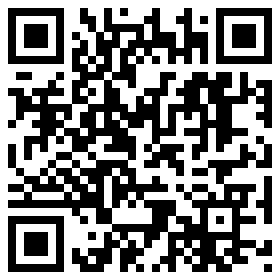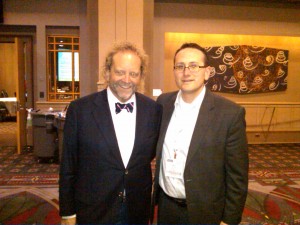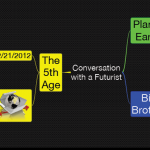 Disclosure – This post was written with the help of Chat GPT
Disclosure – This post was written with the help of Chat GPT
In this digital age, advancements in artificial intelligence have opened up new avenues for personal and professional growth. One such tool that has significantly impacted my journey as a writer, researcher, and principal is Chat GPT. This cutting-edge language model has been a game-changer, empowering me to hone my skills, delve into extensive research, and enhance my effectiveness in educational leadership. In this blog post, I will share how Chat GPT has transformed my professional journey, amplifying my capabilities and enriching my role as a well-rounded educator.
- Enhancing Writing Proficiency: As a writer, the precision and versatility of Chat GPT have been instrumental in refining my writing skills. By engaging in conversations and seeking guidance from this powerful AI tool, I have received valuable insights, suggestions, and corrections that have significantly improved my grammar, sentence structure, and overall coherence. The ability to interact with Chat GPT has helped me develop presentations, memos, letters to parents and even my weekly email.
- Facilitating Extensive Research: Conducting thorough research is an essential aspect of educational leadership. Chat GPT has emerged as an indispensable resource, enabling me to access a vast repository of knowledge at my fingertips. I am finding myself visiting Chat GPT prior to “Googling”. By leveraging the model’s capabilities, I can explore diverse topics, gather information, and delve into the latest educational research and best practices. The speed and efficiency with which Chat GPT can provide relevant information have significantly expedited my research process, enabling me to make informed decisions and stay abreast of the ever-evolving educational landscape.
- Enriching Professional Development: As a principal, continuous professional development is crucial for staying at the forefront of educational innovation. Chat GPT has become my virtual companion, offering personalized insights and guidance tailored to my specific needs. By engaging in conversations with the model, I can seek advice on instructional strategies, leadership techniques, and current educational trends. This interactive learning experience has broadened my perspectives and even in a pinch, I was able to develop interview questions, refine the RTI process and I’ve used it to develop preliminary schedules.
- Strengthening Decision-Making: Educational leadership often requires making informed and data-driven decisions. Chat GPT has proven to be an invaluable tool for accessing relevant information and insights to support my decision-making process. By leveraging its capabilities, I can engage in thoughtful discussions, seek different viewpoints, and weigh the pros and cons of various options. This enables me to make well-informed decisions that positively impact students, teachers, and the overall school community.
- Fostering Collaboration and Communication: Effective communication and collaboration are essential in the realm of education. Chat GPT serves as a catalyst for meaningful exchanges, providing a platform to connect with other educators, share ideas, and seek advice. By leveraging the model’s conversational abilities, I can engage in productive discussions, connect with like-minded professionals, and foster a collaborative network that enriches my educational journey. Through Chat GPT, I can tap into a wealth of collective knowledge and collaborate on innovative projects that benefit my school community.
Chat GPT has proven to be an invaluable asset, transforming my role as a writer, researcher, and principal. Its capacity to enhance writing proficiency, facilitate extensive research, enrich professional development, strengthen decision-making, and foster collaboration has been instrumental in my growth as an educator. As I continue to leverage the power of Chat GPT, I am confident that it will continue to propel my journey as a well-rounded and effective educational leader, allowing me to navigate the challenges and seize the opportunities that lie ahead.
About the Author
Spike Cook, Ed.D., Principal, RM Bacon Elementary, Millville, NJ. In addition to being a Principal, Dr. Cook published two books through Corwin Press (Connected Leadership: It’s Just a Click Away; Breaking Out of Isolation: Becoming a Connected School Leader). He is the co-host of the popular PrincipaPLN podcast and a regular on the Unlock the Middle Videocast. His blog, Insights Into Learning, was recognized as a finalist for Best Administrator Blog by the EduBlog Awards. Spike earned his Doctorate from Rowan University and is an Adjunct Faculty member in the Masters of School Administration Program He is featured in Twinkl’s 30 Education Influencers You Need to Follow and Klear’s Top Ten Middle School Influencers. Dr. Cook is also on the Education Advisory Board for Whole Health Ed. Connect with @drspikecook via Twitter, YouTube, LinkedIn, Facebook or Instagram.
 How many times during the COVID 19 Pandemic have you heard this phrase, “We are living in unprecedented times.” No truer words have been spoken. Our entire world has been impacted and we are going to need our educational institutions to be prepared with a different way of doing things.
How many times during the COVID 19 Pandemic have you heard this phrase, “We are living in unprecedented times.” No truer words have been spoken. Our entire world has been impacted and we are going to need our educational institutions to be prepared with a different way of doing things.
 Spike Cook,
Spike Cook,













